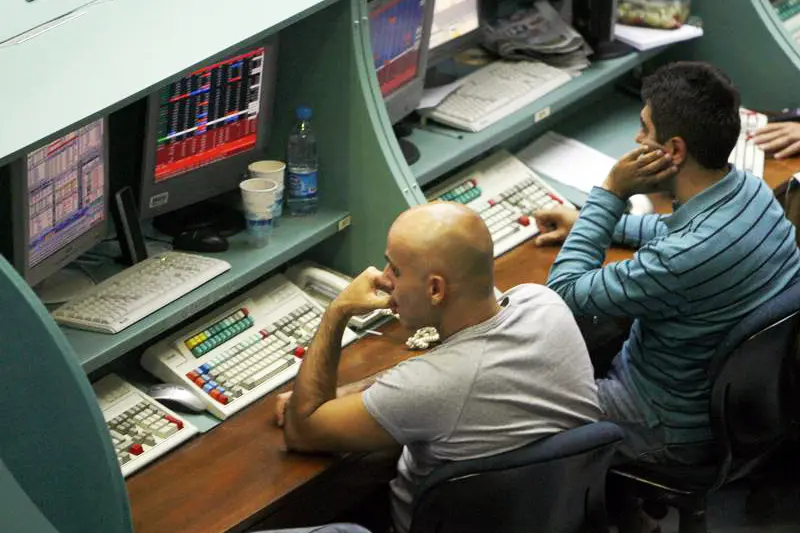PHOTO
By Nevzat Devranoglu and Daren Butler
ANKARA/ISTANBUL, Jan 24 (Reuters) - Turkey's central bank pushed up the cost of borrowing but left its main interest rate on hold on Tuesday, disappointing investors who had hoped for a significant rate hike to support the lira and ease concerns about the bank's independence.
Less orthodox efforts by the central bank to stem chronic falls in the lira through liquidity management while avoiding the sort of conventional rate hike long opposed by President Tayyip Erdogan have proved largely ineffective.
The bank hiked its overnight lending rate by 75 basis points to 9.25 percent and the rate at its late liquidity window to 11 percent from 10, lifting borrowing costs at the two main channels through which it has funded the market in recent weeks.
It left its main one-week repo rate on hold at 8 percent, defying many economists' expectations of a hike, although it has not held a daily one-week repo auction since Jan. 11 in a bid to tighten lira liquidity. It said it could take further measures if there is "unhealthy pricing behaviour" in the forex market.
"It's not enough," said Jakob Christensen, head of emerging markets research at Danske Bank in Copenhagen.
"This is a weak, half-hearted response. The central bank is clearly not independent enough to do what it takes. It is trying to do some back door tightening with the late liquidity window but we would have liked to have seen more on all the rates."
The lira
It has fallen some 8 percent this year, adding to double-digit declines in 2015 and 2016. Investors have been unnerved by insecurity, political uncertainty and a slowing economy, and worry the central bank is less than independent.
Erdogan, who wants cheap credit to boost growth, has long been opposed to high interest rates and has characterised the lira sell-off as an attack on the economy by outside forces plotting to slow Turkey's economy.
He and government officials have repeatedly insisted the central bank is independent. But it has resorted to unorthodox liquidity moves to try to defend the currency, heightening the perception it wants to avoid outright rate hikes.
The bank has cut off some funding taps to force lenders to borrow more from the costlier late liquidity window, a facility only available after 4:00 p.m. (1300 GMT) and designed for banks who need a lender of last resort.
"It will be a very unpredictable and uncertain environment for Turkish banks," said Serhat Gurleyen, research director at Istanbul-based Is Investment, after Tuesday's announcement.
"Some days where global risk appetite is high, the central bank will use money market rates and some days (when) global risk appetite is low, it will reduce liquidity. We expect the lira to weaken further in face of this."
"SMOKE AND MIRRORS"
Half of the economists in a Reuters poll had forecast a hike of 50 basis points in the main one-week repo rate, which the bank left at 8 percent. It stopped holding daily one-week repo auctions two weeks ago, pushing lenders instead to borrow more at the late liquidity window.
The bank also left its overnight borrowing rate, the lower end of its interest rate corridor, at 7.25 percent.
"Inflation expectations, pricing behaviour and other factors affecting inflation will be closely monitored and, if needed, further monetary tightening will be delivered," the bank said in its statement.
The impact of Tuesday's steps on the average cost of funding
"This was a grudging hike - more of the same, with smoke and mirrors from the CBRT (central bank)," Timothy Ash of BlueBay Asset Management said in an emailed note.
"By keeping its base/borrowing rates unchanged, the CBRT will be able to sell a message to its political masters and its more orthodox constituency that rates are not actually going higher," he said.
"But the nagging concern from I think most economists/market participants is that the CBRT is not really willing to do whatever it takes to stabilise the lira or indeed rein in inflation."
Deputy Prime Minister Mehmet Simsek described the central bank's decision on Twitter as "positive".
There was no immediate response from Erdogan, who is on an official visit to Mozambique. But his aide, Bulent Gedikli, said tightening lira supply could only achieve so much and called for urgent structural reforms.
"Reform, reform, reform," he said on Twitter, without going into details. "Only so much can be done by limiting lira."
(Additional reporting by Humeyra Pamuk, David Dolan, Can Sezer and Behiye Selin Taner in Istanbul, Orhan Coskun in Ankara, Sujata Rao in London; Writing by Nick Tattersall; Editing by Catherine Evans) ((nicholas.tattersall@tr.com; Reuters Messaging: nicholas.tattersall.thomsonreuters.com@reuters.net))





















